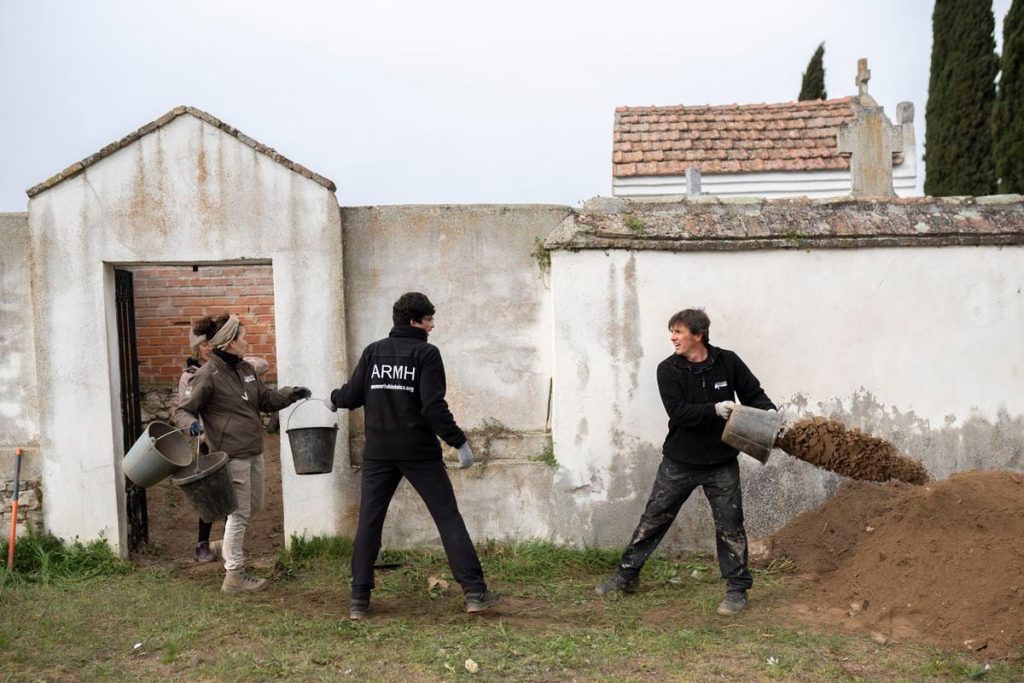In the cemetery of Mojados, a small town in Valladolid, Spain, the family of Pedro de la Calle is working to give their ancestor a proper burial. Pedro was a socialist shepherd who was killed in 1936 by Falangist gunmen, and buried in an unmarked grave. His family has requested his exhumation, which has begun amidst controversy surrounding a new “concord law” proposed by the regional government of Castilla y León, led by the conservative Popular Party and far-right Vox party. The law aims to protect the privacy of individuals involved in the Spanish Civil War and Francoist regime, hindering efforts to remember and honor victims of the conflict.
The Association for the Recovery of Historical Memory (ARMH) is leading the exhumation efforts, aided by volunteers who are digging up the neglected plot where Pedro de la Calle was buried. As they clear away dirt and debris, they uncover the remains of other individuals, including children who were buried in unmarked graves due to being unbaptized. Despite the challenges, the activists remain committed to finding Pedro’s remains and giving him a dignified burial, even as the newly proposed law threatens to restrict their efforts to uncover the truth about the past.
Marco Antonio González, vice president of the ARMH, expresses concerns about the proposed law, which aims to limit public access to information about victims of the Civil War and Francoist regime. He criticizes the legislation for failing to mention the dictatorship or condemn Francoism, as well as extending its scope back to the years of the Second Republic in 1931. This contrasts with the previous decree on historical memory passed in 2018, which focused on the period from 1936 onwards, the year of the Francoist uprising against the Republican government.
The exhumation process is met with mixed reactions from local residents, with some expressing support for efforts to remember and honor those who suffered during the Civil War and Francoist regime, while others remain unaware of the significance of the excavation. The daughter of Pedro de la Calle had requested his exhumation multiple times before her death, but her wishes went unfulfilled. Her grandson, who now advocates for the exhumation, has chosen not to attend the proceedings, reflecting the complex emotions surrounding the memory of past atrocities in a community that has been historically silent about its dark past. Despite the challenges, the volunteers of the ARMH persevere in their mission to uncover the truth and give justice to those who were unjustly victimized.
As the volunteers continue to unearth the remains of past victims, the scene in the cemetery becomes a poignant reminder of the dark history that still lingers in the collective memory of the community. The juxtaposition of the neglected plot where Pedro de la Calle was buried with the newly expanded section of the cemetery, funded by the regional government, highlights the ongoing struggle to remember and reconcile the painful legacy of the past. The excavation serves as a symbolic act of resistance against attempts to silence the voices of the victims and their families, ensuring that their stories are not forgotten and that their sacrifices are honored.


